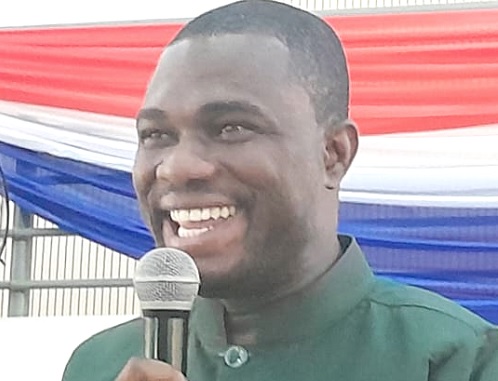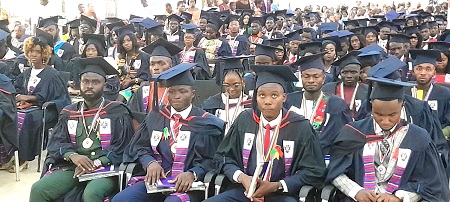
Changing world requires new teaching approach — GES Director-General
The Director-General of the Ghana Education Service (GES), Dr Eric Nkansah, has stated that the rapidly changing world has made it necessary for a change in approach of teaching learners.
Advertisement
That, he said, was to equip learners with the 21st-century skills needed to transform communities and the country as a whole.
Dr Nkansah explained that the Ghana Education Service (GES) was implementing the Standards Based Curriculum (SBC) for kindergarten, primary one and primary six pupils, as well as replacing the Objective Based Curriculum (OBC).
The Director-General made this known in his address at the 15th annual congregation of the Kibi Presbyterian College of Education at Kyebi in the Abuakwa South Municipality in the Eastern Region last Saturday.
The event was the theme, "Total recovery of Ghana's economy hinges on education:
The role of the 21st-Century teacher", during which 360 students passed out.
Out of the number, 17 had First Class, 181 Second Class Upper, 143 Second Class Lower and 19 passes.
21st-century skills
Dr Nkansah said the Ministry of Education was also implementing the Common Core Programme (CCP) curriculum at the Junior High School (JHS) level to equip learners with knowledge, abilities and attitudes with 21st century skills and competencies needed for further studies, field work and lifelong learning.
According to him, the government in 2012, therefore, launched the pre-tertiary teacher professional development and management policy to foster the development of world-class teachers to contribute to student’s learning and achievement.

Teaching approaches
That policy, the Director-General stated, provided the framework for development standards, core values and ethics for the teaching profession which also sought to develop teachers ability to adopt reflective teaching approaches to enhance the quality of lessons delivery in kindergarten, primary, JHS and second cycle institutions.
College’s history
Giving a historical background of the college, the Principal, Rev. Dr Charles Fosu-Ayarkwah said the college was founded in 1963 with only six tutors and eight students under the management of the Presbyterian Church of Ghana.
He said currently, the educational institution, which was accredited by the Ghana Tertiary Education Commission (GTEC) of the Ministry of Education as a degree research institution affiliated to the University of Cape Coast, had a student population of 1,954.
Negative attitudes
The Okyenhene, Osagyefuo Amoatia Ofori Panin, who also addressed the graduates, said it was unfortunate that negative attitudes of Ghanaians were serving as draw back to Ghana's development.
He said it was ,therefore, necessary to adopt positive attitudes in all their undertakings rather than negative attitudes.
According to the Okyenhene, the college had made significant strides since it's inception.
64-acres of land
He said the establishment of the college was made possible by the allocation of a 64-acres of land to the PCG by the Akyem Abuakwa Traditional Council.
The Okyenhene said with the assistance from the government, a number of facilities were provided to cater for the students and tutors.
He said over the last six years, the college had witnessed unprecedented infrastructure development with the construction of several edifices to serve the needs of the college.
According to the Okyenhene, that was in line with the government's initiative to transform teacher training colleges to universities.




